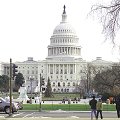- By the office of Rep. Tom Reed
- News
 Print
Print  Tom Reed co-sponsored the bipartisan “American Research and Competitiveness Act of 2014,” a bill passed in the House Friday to increase opportunities for American research and development. Reed says supporting research and development is not only good news for innovation but gives businesses a reason to invest and add jobs in the United States. The bill is consistent with Reed’s broader tax reform efforts in the House to make the code simpler and fairer.
Tom Reed co-sponsored the bipartisan “American Research and Competitiveness Act of 2014,” a bill passed in the House Friday to increase opportunities for American research and development. Reed says supporting research and development is not only good news for innovation but gives businesses a reason to invest and add jobs in the United States. The bill is consistent with Reed’s broader tax reform efforts in the House to make the code simpler and fairer.“If we want to really support and care for the research being done in this country, we have to simplify the process and make its benefits more tangible,” Reed said. “Giving job creators certainty with this permanent measure will increase research and development in the United States, in turn boosting investment and innovation. When job creators know with certainty what the tax landscape will look like for them, they are better able to add new jobs and pay the wages of existing employees.”
The American Research and Competitiveness Act simplifies the process for claiming the research credit, increases the value from 14 percent to 20 percent and makes the credit permanent. Too often a victim to short-term extensions, bipartisan supporters say the policy will be more effective if made permanent and will better allow businesses to plan and budget each year.
“With the highest corporate tax rate in the world, we are doing job creators a disservice by unfairly leaving them guessing at each short-term extension,” Reed continued. “When we see American companies like Pfizer leave the United States because of a convoluted tax code that stifles growth, we know something is very wrong. If we want to prevent more U.S. companies from following suit, we have to make our tax code more competitive and put our businesses in a position where investing in the U.S. is more beneficial to them.”
John Reed of local manufacturer Dresser-Rand said, “The R&D credit in the U.S. helps Dresser-Rand, and other U.S. based companies, compete in the global marketplace. Making it a permanent credit allows us to plan for and sustain increased product development which enhances America’s position as a leader in developing technology.”
Tom Reed went on to say the 0.1 percent growth rate the United States saw in the first quarter of the year is a clear indication that more needs to be done to improve the current economic environment. “The United States’ growth rate is about as close to stagnant as you can get,” Reed said. “By changing the status quo and giving job creators certainty, we bring back their ability to innovate.”
Once the leader in supporting R&D incentives, the United States has fallen to 22nd among industrialized countries according to an Organization for Economic Cooperation and Development (OECD) report. Many of the countries now surpassing the United States have already adopted a permanent R&D incentive like the one passed in the House today. The non-partisan Joint Committee on Taxation (JCT) estimates the American Research and Competitiveness Act of 2014 would increase research investment by up to ten percent.
Reed, a Member of the Ways and Means Committee helped move the bill out of committee last month and get it to the House floor. Making the long-standing research credit permanent is supported by a number of pro-growth groups including the National Association of Manufacturers (NAM) and the United States Chamber of Commerce.
v10i18



